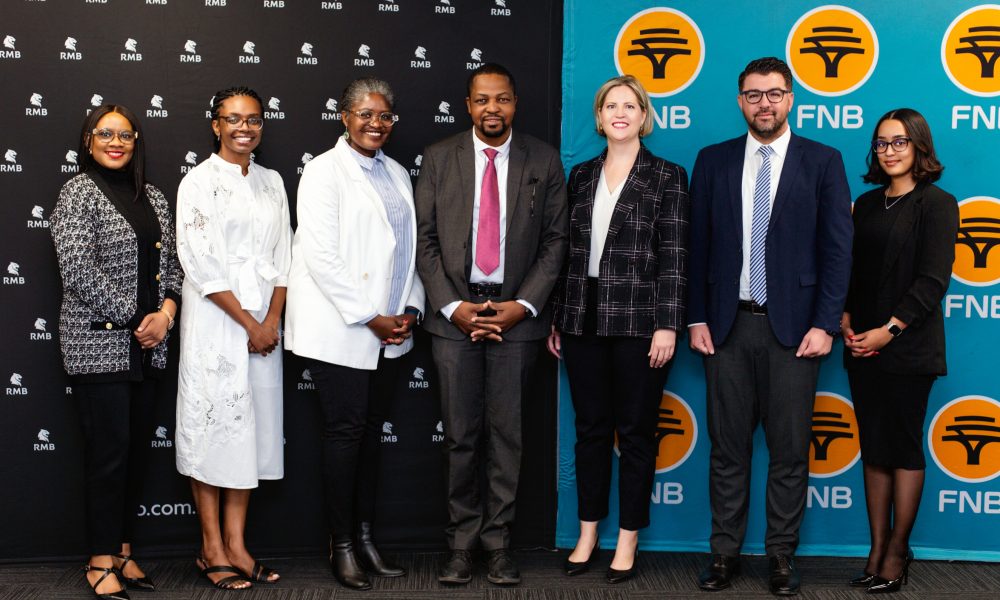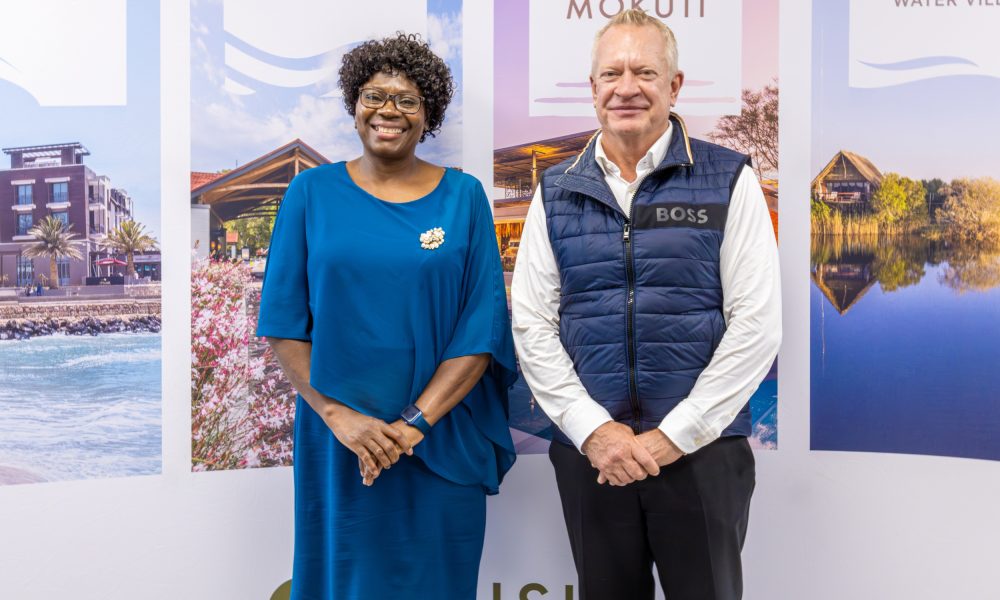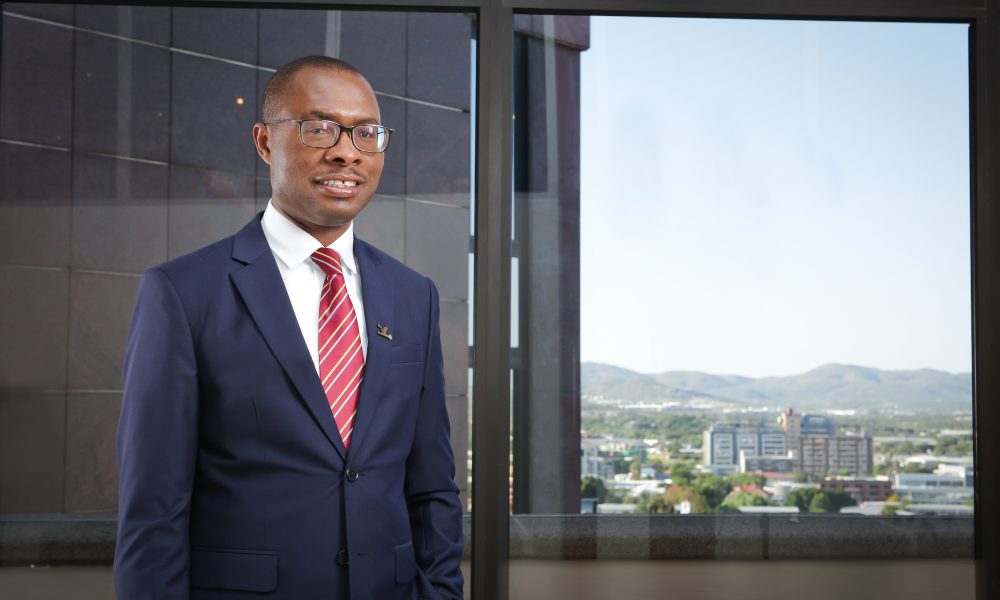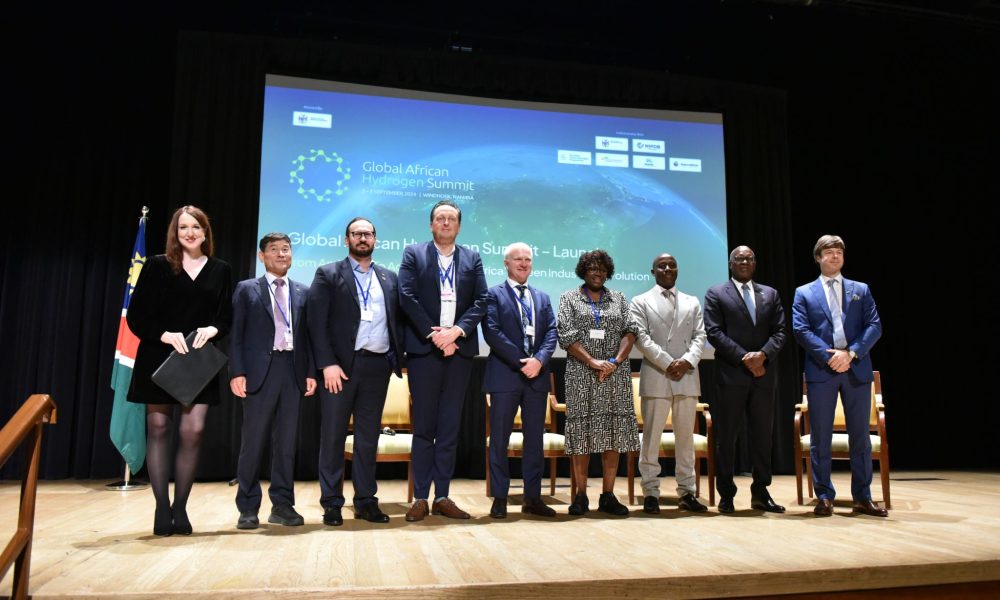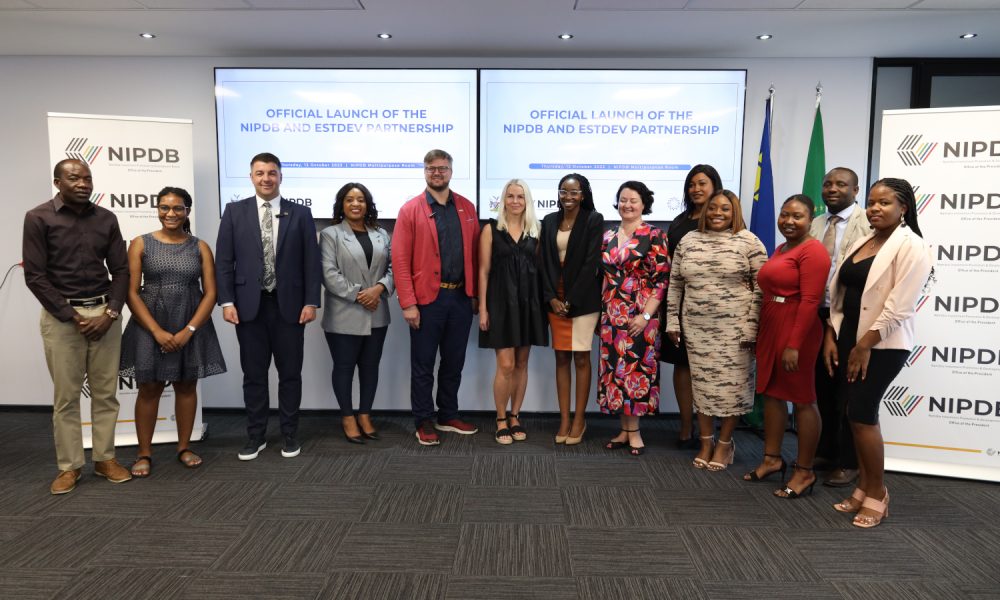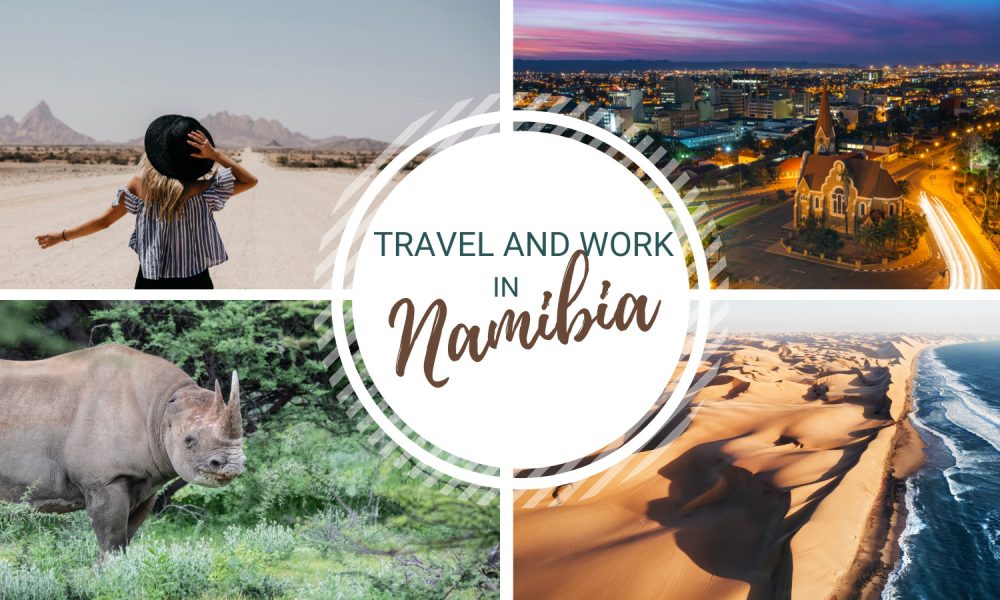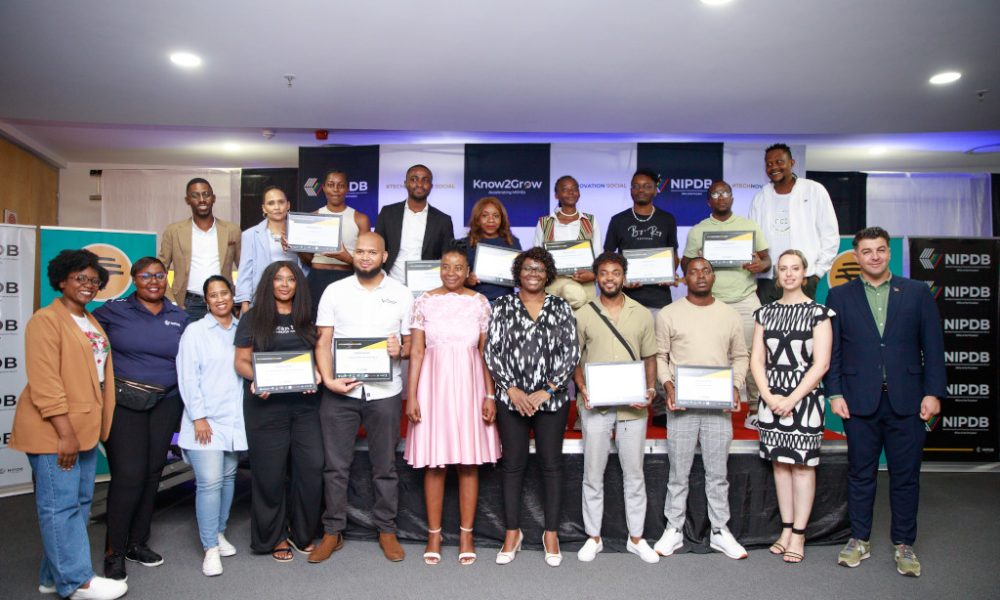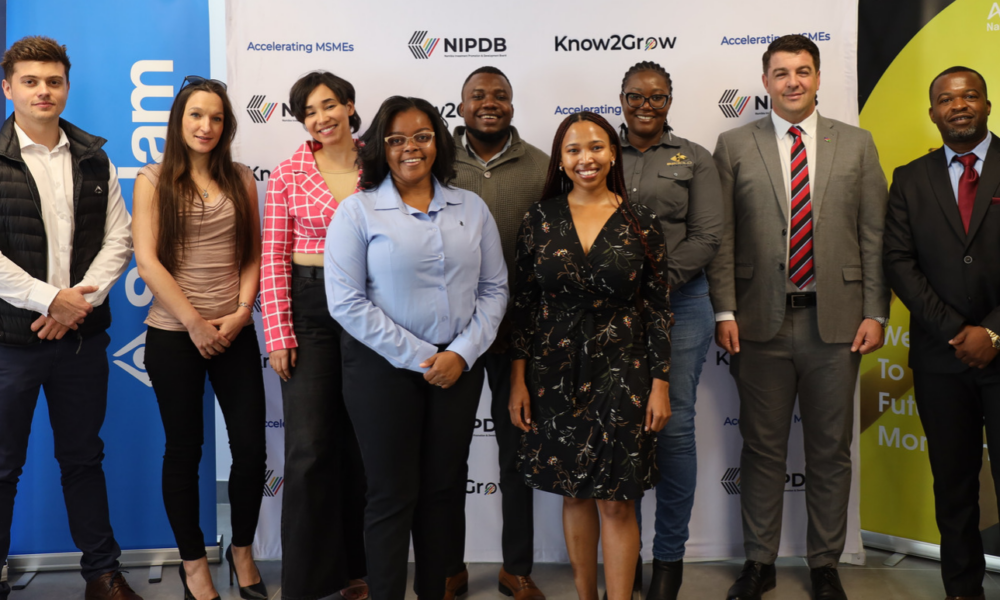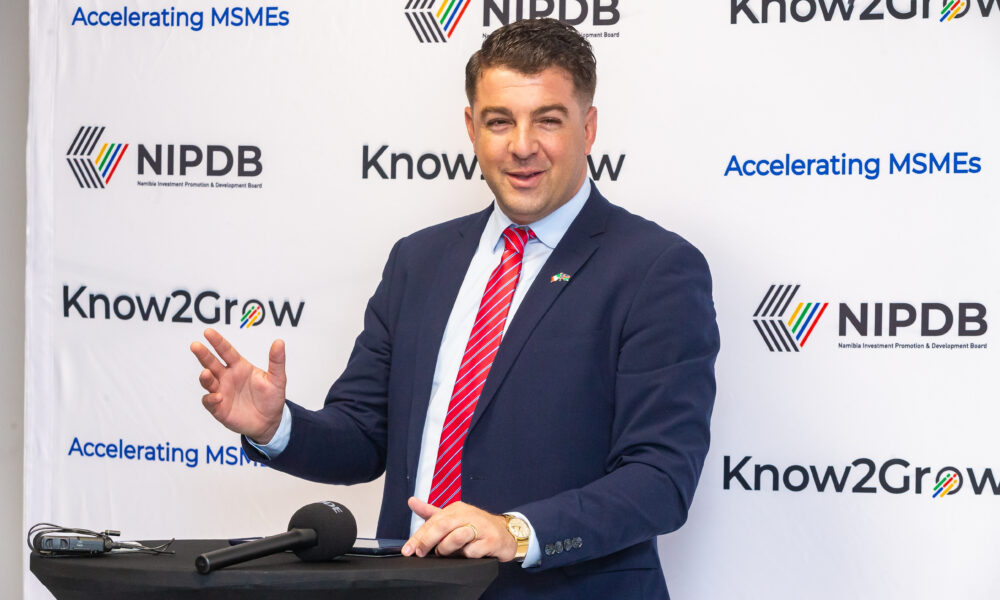RMB and FNB Commercial backs
- 30 May 2024
RMB and FNB Commercial backs the Africa Hospitality Investment Forum with N$500,000 sponsorship 28 May 2024On behalf of FirstRand Namibia
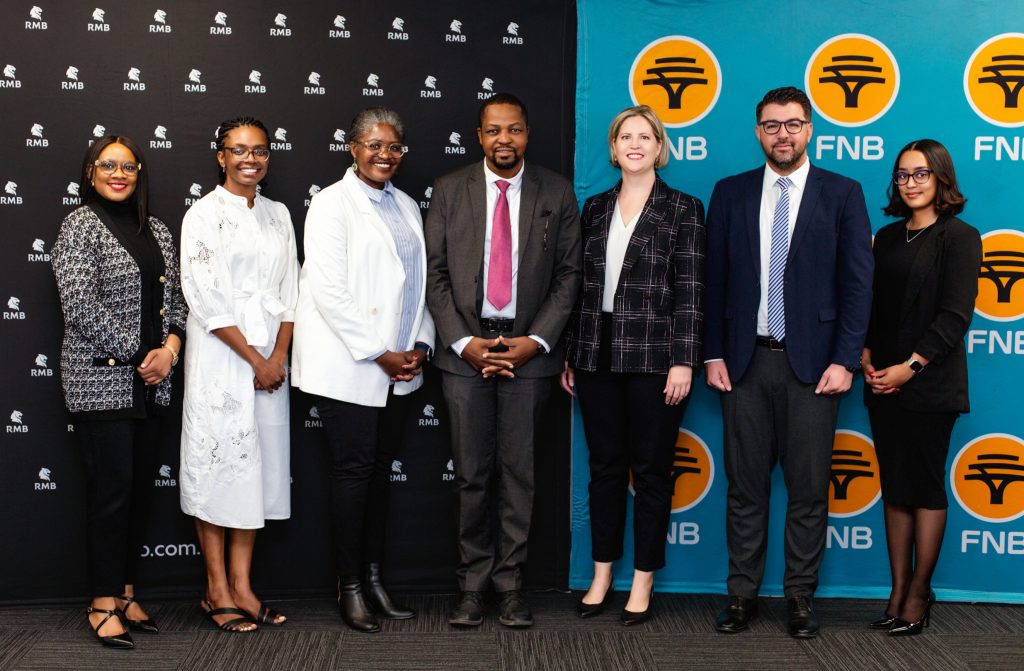
28 May 2024
On behalf of FirstRand Namibia Group, as Group entities, FNB Commercial and RMB today announced a N$500,000 sponsorship towards the Africa Hospitality Investment Forum (AHIF) to be hosted by Namibia on 25 – 27 June 2024.
AHIF, which is known as the most influential annual gathering of hospitality industry investors, business leaders, government officials, bankers, and expert advisors on the African continent, typically welcomes delegates from over 50 countries for three days of high-level networking, formal business meetings and discussion of all the latest trends and developments.
The Namibia Investment Promotion and Development Board (NIPDB) facilitated the winning for Namibia, and serves as the host partner for this year’s event. The sponsorship demonstrates a shared commitment to enhancing Namibia’s competitiveness while contributing to economic growth and development.
FNB Namibia’s Head of Enterprise Banking, Connie-Marlene Theyse reiterated that the Group recognizes the tourism industry’s significance to the Namibian economy, as a significant creator of employment and social upliftment, and its vital contribution to other vital sectors.
“We are proud to partner with the Namibia Investment Promotion and Development Board for the Africa Hospitality and Investment Forum with a N$500,000 sponsorship on behalf of FirstRand Namibia. The work done by the NIPDB to win the bid to host the Africa Hospitality Investment Forum is commendable as it provides a platform to showcase Namibia and its uniqueness as a travel destination and provides a platform to unlock opportunities for local industry players and investors”, said Theyse.
NIPDB Executive Director for Strategy & Branding, Margareth Gustavo applauded the FirstRand Namibia Group for its consistent support to Namibia evidenced by collaboration on various investment promotion related events and MSME development projects over the past three years. She added that this is a demonstration of the Group’s deliberate commitment to sustainably growing the Namibian economy and contributing towards driving investments into key sectors that catalyse the attainment of the national development agenda.
“This sponsorship is not just about financial support, but also about bringing together diverse stakeholders to develop Namibia. We look forward to continued collaboration and participation in various development projects that aim to make Namibia a thriving and prosperous nation”, said Gustavo.
AHIF is expected to bring together over 300 delegates who will converge in Windhoek to discuss key topics including Government Initiatives to Support Hospitality, Hotel Development, Hotelification of the Workspace, Investing in Namibia as well as the New Global Geopolitical Order and its Impact on Hospitality, amongst others.
His Excellency President Nangolo Mbumba will formally open the event on 26 June 2024. Other prominent speakers include the Minister of Environment, Forestry and Tourism, Honourable Pohamba Shifeta and several top executives who, between them, have the power to transform a destination by funding projects.
Caption:
Catherine Shipushu, NIPDB Senior Manager: Marketing, Communication and Branding, Nangula Shejavali, NIPDB Manager: Policy Reform and Business Climate, Margareth Gustavo, NIPDB Executive Director: Strategy & Branding, Daniel Motinga, Head of Sovereign & Public Sector Banking at RMB Namibia, Connie-Marlene Theyse, Head of Enterprise Banking at FNB Namibia, Dino Ballotti, NIPDB Executive Director: MSME Development, Innovation & Acceleration and Ndeapo Wolf, NIPDB Consultant: Development & Partnerships at the sponsorship handover ceremony at the Investment House this morning.
Issued by : Catherine Shipushu
Senior Manager: Marketing, Branding and Communications
Namibia Investment Promotion and Development Board
Telephone: +264 83 333 8636
Mobile: +264 81 127 9069
Email: catherine.shipushu@nipdb.com
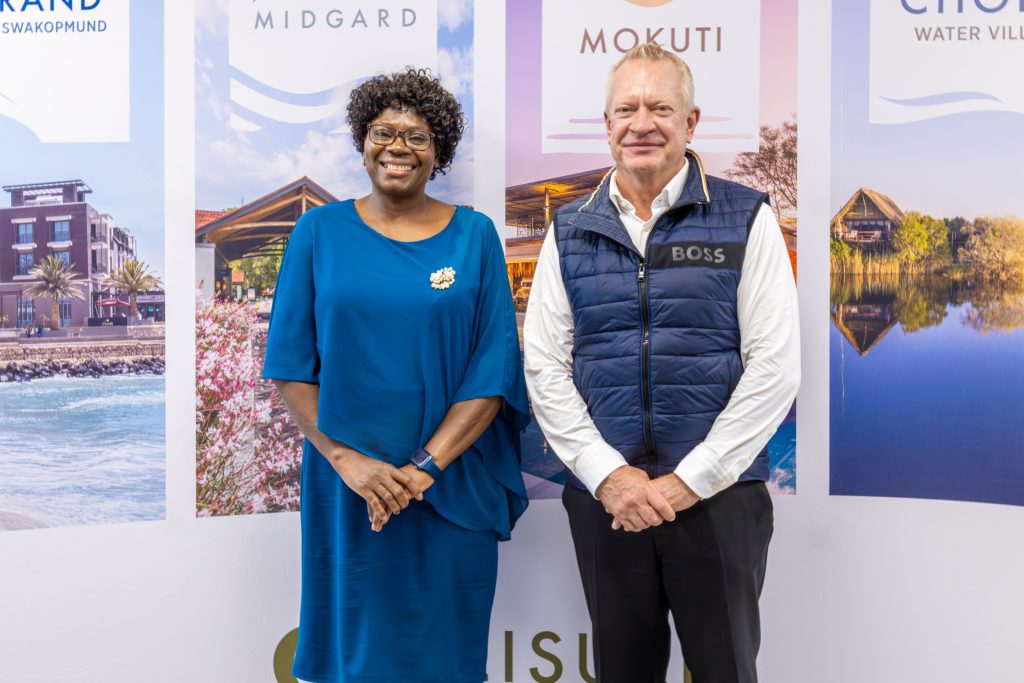
Sunday, 26 May 2024
In just five weeks, over 300 hospitality industry investors, business leaders, government officials and expert advisors on the African continent will converge in Windhoek for the Africa Hospitality Investment Forum (AHIF) 2024. This is the first time the event is coming to Southern Africa, after Namibia won the bid and was announced as the 2024 host last year. The bid was facilitated by the Namibia Investment Promotion and Development Board (NIPDB), which also serves as the host partner in Namibia.
Announcing the sponsorship in Windhoek today, O&L Executive Chairman and Managing Director of O&L Leisure, Sven Thieme congratulated the NIPDB for facilitating the winning bid for Namibia, noting that this is an achievement that highlights a collective commitment to showcase Namibia’s unique tourism potential on the international stage.
“The NIPDB shares O&L Leisure’s vision of positioning and marketing Namibia as a premium destination, offering world-class experiences. Together, we strive to bring Namibia’s rich culture, stunning landscapes, and exceptional hospitality to the forefront of the international tourism industry”, said Thieme.
AHIF is known to be a premier investment forum that gathers the highest calibre of international hotel investors, making it the most influential conference of its kind in Africa. It also plays a crucial role in driving investment into tourism projects, infrastructure and hospitality development on the continent, and thus has the potential to contribute towards reshaping Namibia’s tourism industry.
“As part of our diversification strategy, geared towards expanding the Namibian economy, tourism has been identified as a potential key driver for economic growth. With the high calibre of investors, hoteliers and financiers coming to Namibia, we are very deliberate in leveraging the convening power of AHIF to showcase the investment opportunities in this sector, with a clear end goal of securing investments that enable a sustainable future for Namibians”, said NIPDB Chief Executive Officer, Nangula Uaandja.
With over 300 delegates attending the forum, hosting AHIF is expected to yield tangible economic benefits for Namibia. The influx of visitors will stimulate economic activity in the country, boosting demand for hotel accommodation, transportation and restaurant services as well as peripheral services such as curio and gifting products.
Uaandja added that in the long-term, successfully hosting this conference is a key element to achieving Namibia’s strategic goal of becoming a business tourism destination, supported by the establishment of the Namibia Convention Bureau aimed at branding and promoting Namibia as a MICE destination. She emphasised that the realisation of these and other economic aspirations require strong partnership-led public and private sector collaboration.
“We therefore welcome the support of our partners O&L Leisure, which is a demonstration of our shared goals to grow the economy sustainably and to unlock opportunities that make prosperity a reality for our people. It is also a pivotal example of public and private collaboration to support the government’s economic development agenda ”, said Uaandja.
Thieme concluded by saying: “By leveraging our collaboration with NIPDB and other stakeholders, we are committed to empowering local communities through job creation and skills development. This ensures that the benefits of a thriving tourism sector are felt by all Namibians, promoting inclusive growth and long-term prosperity.”
The Africa Hospitality Investment Forum will take place on 25 – 27 June 2024 at the Mövenpick Hotel in Windhoek, where delegates will converge for three days of high-level networking, formal business meetings and discussions of all the latest trends and developments in the hospitality industry.
Issued by : Catherine Shipushu
Senior Manager: Marketing, Branding and Communications
Namibia Investment Promotion and Development Board
Telephone: +264 83 333 8636
Mobile: +264 81 127 9069
Email: catherine.shipushu@nipdb.com
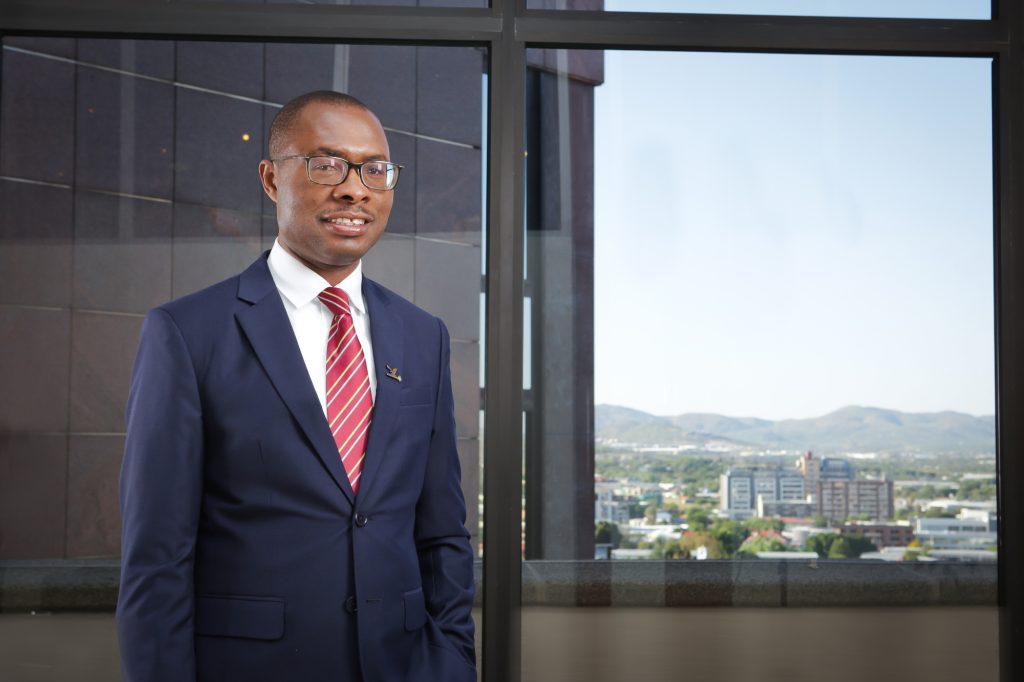
Windhoek, 29 February 2024
In his New Year’s speech for 2024, President Hage Geingob themed this year as the ‘Year of Expectations’. In so doing, the President had envisioned that following the Government’s promise of prosperity and the subsequent strategic interventions to attain this ambitious goal, this will be the year that elements of this vision are expected to start manifesting. The budget presented by Honourable Iipumbu Shiimi yesterday indicates that the strategy is starting to bear fruit and reflects good news for everyone from individuals to business entities.
The 2024/25 national budget is anchored in the overarching theme “Continuing the legacy of His Excellency Dr. Hage G. Geingob by caring for the Namibian child”, and is focused on the deliberate intention to bring prosperity closer to the Namibian people by promoting economic growth, while reinforcing the government’s vision of building an inclusive private-sector led economy. We therefore welcome the government’s efforts to broaden the country’s tax base, and implementation of certain provisions in the SADC Protocols to align with regional benchmarks.
Notwithstanding the recent greylisting and related reputational risks, the Namibian economy has been on an upward trajectory in the last three years, with a growth rate of 6.5% in 2022 and an average of 7% in the first three quarters of 2023 and record-breaking Foreign Direct Investment (FDI) of N$ 17.5 billion for 2022 and N$ 26.4 billion for the first three quarters of 2023. With an increasing global presence and unparalleled natural resources, the Namibian economy has the potential to grow significantly provided the country sustains a progressive business environment, underpinned by a collective priority towards constraints elimination, policy reforms, skills and MSME development, amongst others.
As Namibia shapes her trajectory as a viable investment destination, the amendments in the national budget are therefore consistent with these aspirations. The budget reflects the government’s efforts to bolster economic growth by improving Namibia’s investment attractiveness, through unlocking domestic and foreign investment, developing a conducive environment for micro, small and medium enterprises (MSMEs) to thrive and creating opportunities for employment. Furthermore, notable tax relief measures for individuals and businesses, such as reduced income and employee taxes, a higher VAT threshold and reduced transfer duties, carry positive impacts for Namibians. We could not have asked for a more fitting tribute to the legacy of the late President Dr. Hage G. Geingob, who advocated for bold and innovative actions to unlock the country’s economic potential and deliver prosperity to Namibians.
At the NIPDB, supporting the government’s economic development agenda remains at the core of our activities. We therefore applaud Honourable Shiimi, the entire Ministry staff and the National Planning Commission for the impactful changes in the budget, particularly relating to targeted interventions and initiatives, some of which are outlined below:
● Increase in the VAT threshold from annual turnover of N$ 500,000 to N$ 1million will not only ease the administrative burden on small businesses, but will also accelerate their growth, by enabling them to compete effectively (with a comparatively lower cost of providing goods and services) and play a pivotal role in economic development.
● Gradual reduction in the corporate tax rate for non-mining entities from 32% to 28% will contribute towards improving Namibia’s competitiveness and provide extra cash to large corporations leading to potential further reinvestment in projects aimed at spurring the economic activities and increased employment;
● A reduced corporate tax rate for MSMEs as defined from 32% to 20% shows the government’s commitment to encourage the growth of these entities;
● The introduction of a dividends tax at 10%, aligned with regional benchmarks, will broaden the tax base and eventually reduce the tax burden currently heavily carried by individuals through PAYE;
● The reduction of the corporate tax rate from 32% to 20% and zero-rating on VAT for approved Special Economic Zones (for up to 10 years) will encourage investments in projects aligned with national priorities of mineral beneficiation/value addition, agro-processing and business process outsourcing. This intervention contributes to the government’s industrialisation agenda and drives further investments in the country;
● Limitation of assessed losses to a maximum of 10 years aligns with regional benchmarks and most importantly will ensure that large corporations will also contribute to the tax coffers, thereby broadening the tax base. This will also reduce the tax burden currently heavily carried by individuals through PAYE;
● The limitation of interest deduction to non-resident related parties is also an intervention that aligns with regional benchmarks. Aside from the obvious benefits of increased tax revenue and curbing transfer pricing challenges, this provision will also encourage corporations to source competitive financing mechanisms including sourcing local capital to finance investment projects;
● Increase in the tax threshold from N$50,000 to N$100,000 and an inflation adjustment of 2.5% means that many Namibians especially those in the lower income brackets will be able to have more disposable income which consequently contributes to economic growth;
● Investment in skills development through the Youth Employment Tax Incentive (My First Job) by contributing 50% towards the internship cost, limited to N$ 50,000 per annum per intern. This intervention will increase Namibia’s competitiveness as skills availability has been identified as the number one consideration for investors before making a final investment decision. The NIPDB is proud to partner with the Ministry of Finance and Public Enterprises to roll out this project on 01 April 2024.
The 2024/25 budget represents a pivotal move in sculpting a thriving Namibian economy and reaffirming the government’s commitment to inclusive prosperity.
About NIPDB:
The Namibia Investment Promotion and Development Board (NIPDB) is mandated to promote and facilitate investment by foreign and Namibian investors, and coordinate MSME activities across all levers of the economy, with the aim of contributing to economic development and job creation.
Issued by : Nangula Uaandja
Chairperson and CEO
Contact Person : Catherine Shipushu
Senior Manager: Marketing, Branding and Communications
Namibia Investment Promotion and Development Board
Telephone: +264 83 333 8636
Mobile: +264 81 127 9069
Email: catherine.shipushu@nipdb.com
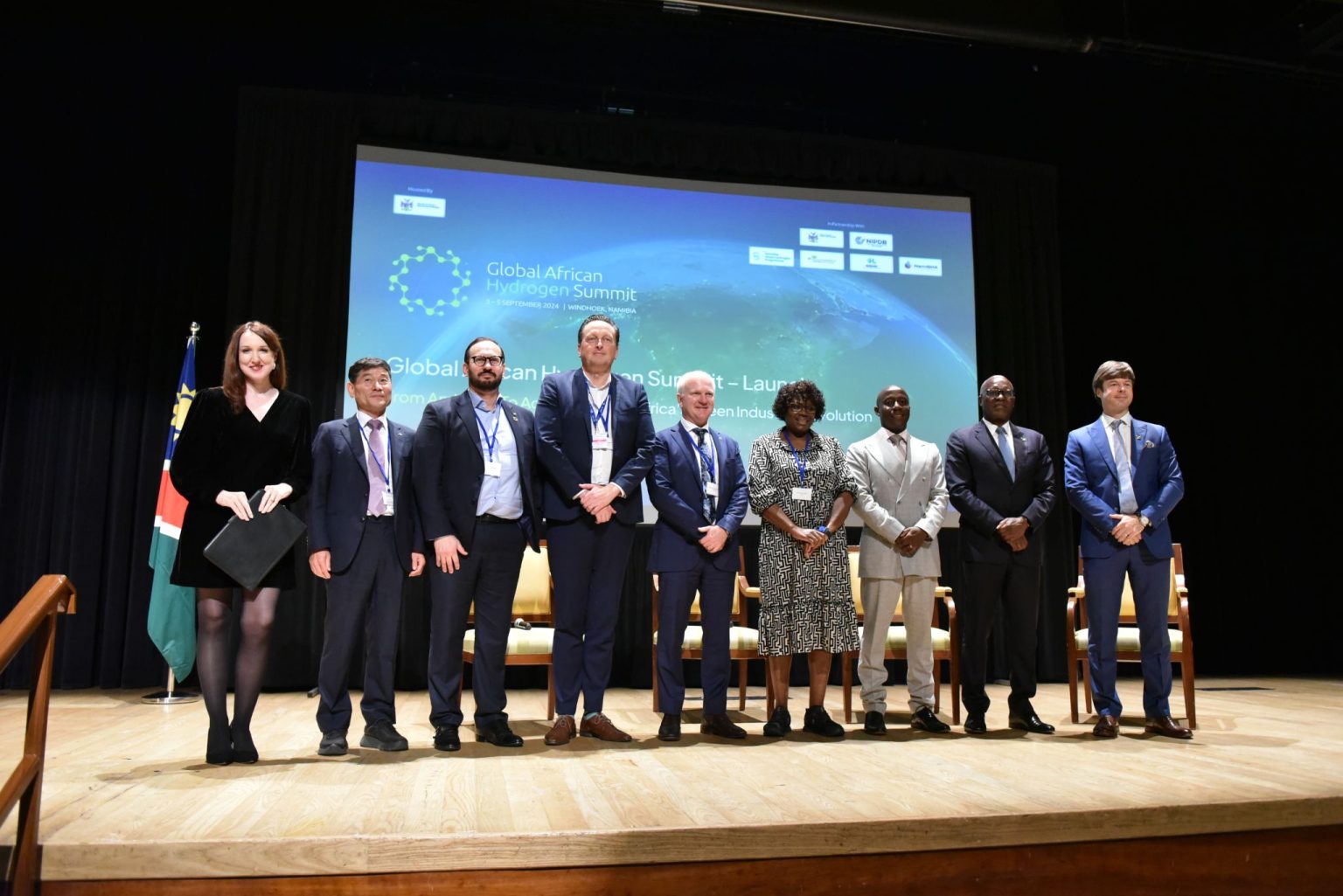
Dubai, 08 December 2023
As part of Namibia’s COP28 programme, the Namibia Investment Promotion and Development Board (NIPDB), the Environmental Investment Fund of Namibia (EIF), DMG events and Vasco Da Gama Energy on 06 November 2023 officially launched the inaugural Global African Hydrogen Summit (GAh2S), to be hosted in Windhoek on 03 – 05 September 2024.
Themed “From Ambition to Action: Fuelling Africa’s Green Industrial Revolution”, the three-day Summit will convene heads of state, government agencies, industry business leaders, project developers, investors, thought leaders and technologists from across Africa and around the globe to drive critical investments and financing into bankable green energy projects. Project and investment showcases will span the hydrogen, renewables, power, infrastructure, transportation and mobility sectors.
The launch was officiated by the Minister of Mines and Energy, Honourable Tom Alweendo who emphasised that the world is facing an unprecedented climate crisis and that the urgency to transition to clean and sustainable energy sources has never been more apparent. Alweendo added that this has become a global imperative that demands collaborative efforts and innovative solutions, and Namibia is poised to play a pivotal role in this global transition agenda.
Said Alweendo: “Africa’s energy position is changing and it is against this backdrop that as a country we are positioning ourselves as the sustainable energy capital of Africa. This will not only be achieved through the sustainable beneficiation of our primary energy resources, but also through the development of green and blue economic growth and energies, investing in platforms that facilitate dialogue and partnerships, skills and technology transfers, as well as trade between Africa and the rest of the world”.
He continued “the Global African Hydrogen Summit will be the first platform of its kind to be leveraged by African governments, investors, financiers, scholars and the public in order to unlock additional opportunities for our continent and its partners. It will also provide a platform for the global players in the hydrogen value chain to showcase their projects, plans and technologies to the African continent”, said Alweendo.
GAh2S will focus on the global role that Africa expects to play in the hydrogen market and will facilitate collaboration and advance dialogue across policy, investment and the emerging hydrogen value chain. The continent has the potential to harmonise its own industrialisation to become a global powerhouse of green manufactured products, whilst applying a localised multiplier effect, stimulating in-continent value including employment creation, ancillary industries, light manufacturing and natural resource refining – uplifting economies across Africa, whilst sustainably bringing an end to energy poverty.
Clean hydrogen can cover a significant portion of the global energy transition needs, especially in hard-to-abate sectors and industries such as steel manufacturing and aviation. Several African countries—most notably Egypt, Kenya, Mauritania, Morocco, Namibia and South Africa—are actively pursuing clean hydrogen production. These countries formed the collective Africa Green Hydrogen Alliance in May 2023 to collaborate on capacity creation, financing, certification, and regulatory and policy agendas of green hydrogen development in Africa. A McKinsey & Company report projects that by 2050, the annual investment required will more than double to US$160 billion, with the focus of investment likely shifting to an expected 43% of capital expenditure spent on hydrogen.
With an abundance of solar and wind energy resources as well as the availability of unpopulated land, Namibia has a unique potential to enable low-cost green hydrogen production. The country is currently investing in the research and development of green hydrogen technologies, through engagement of, and support from, foreign institutions and partner countries like Germany. In May 2023, the government of Namibia and Hyphen Hydrogen Energy announced a deal for the next phase of a US$10 billion green hydrogen project that will export green molecules to Europe once complete. Long-term offtake agreements are expected in this case. The development of a stable green hydrogen market has the potential to facilitate investment in skills for the domestic workforce, enhance local jobs creation and thus uplift livelihoods.
Convening The Global Hydrogen Industry In Namibia
In its inaugural edition hosted in Namibia, the three-day Global African Hydrogen Summit will convene heads of state, government agencies, industry business leaders, project developers, investors, thought leaders and technologists from across Africa and around the globe to drive critical investments and financing into bankable green energy projects of strategic and national importance across Africa, spanning hydrogen, renewables, power, infrastructure, transportation and mobility.
As a dynamic and innovative investment platform, the Global African Hydrogen Summit will provide a variety of engagement opportunities including an educative masterclass, high level leadership dialogues, a strategic conference, project investment boardroom roundtables, and a technology and innovation hub.
Participation is expected from across the global hydrogen value chain including:
· 6+ heads of state
· 20+ African ministers
· 40+ bankable African clean energy projects
· 2,000+ attendees
· 700+ conference delegates
· 100+ youth participants
· 80+ expert industry speakers
· 75+ technology and innovation zones
· 65+ countries represented from around the globe
· 50+ showcased startups
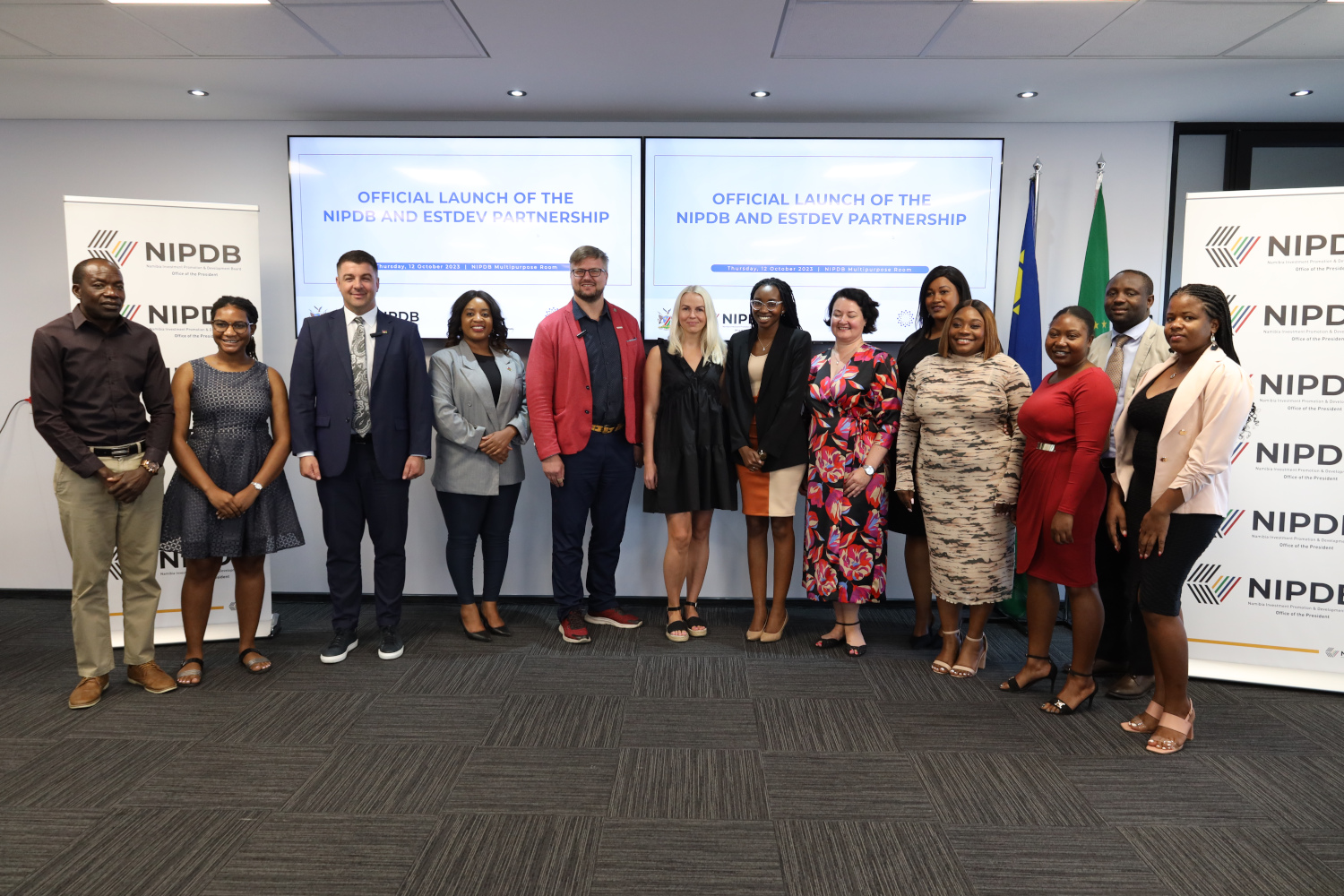
Wednesday, 18 October 2023, Windhoek
According to the 2022 Digital Financing for Sustainable Development: An Assessment and Strategy for Namibia commissioned by Government of the Republic of Namibia, with support from the United Nations (UN) in Namibia under the technical assistance of the UN Development Programme, Micro, Small, and Medium Enterprises (MSMEs) in Namibia, though crucial, grapple with the need for digital adaptation, sustainable innovation and consistent growth. In light of these challenges, the Namibia Investment Promotion and Development Board (NIPDB) has entered into a strategic partnership with the Estonian Centre for International Development (EstDev), a government-funded foundation responsible for managing and implementing Estonia’s international development cooperation and humanitarian assistance projects. The partnership will, amongst others, culminate in the development of a digital capacity and skills development strategy for Namibian MSMEs, which will define and outline support measures for their benefit.
“We are very pleased to embark on our collaboration with the NIPDB. EstDev and NIPDB share the same motivation to deliver change. We also share the same vision to support Namibian MSMEs and start-up ecosystems. For Estonia, Namibia has a special meaning. We both gained independence at the same time, we are both small and agile, and share similar values on human rights and democratic governance. Thus, it is no wonder that Namibia is one of the African countries Estonia has prioritised for its development cooperation” Ms. Nelli Timm, Regional Advisor for Africa for EstDev.
With a combined investment of EUR 146,000 (close to N$3 million), the partnership between NIPDB and EstDev is a determined step to enhance and elevate the capabilities of the MSME sector in Namibia in areas such as online banking and eCommerce, the use of
mobile apps to streamline their activities and online market research.
The partnership, which has its roots in strategic meetings held between EstDev and NIPDB in Estonia in May 2023, will materialise in three key projects, the first of which will kick off in November 2023, in Swakopmund:
Tallinn University of Technology – This initiative aims to introduce Estonian methodologies and online tools to promote entrepreneurship and innovation in Namibia, with an emphasis on sustainable growth through green technology and a circular economy.
BCS Digital Skills Academy – This initiative, led by the NIPDB, will respond to the demand for digital proficiency in Namibia, outlining strategies for the forthcoming 3-5 years, encompassing action points and an introductory training segment.
Foundation Tallinn Science Park TEHNOPOL – Aiming to consolidate economic relationships between Estonia and Namibia, this endeavour will focus on building a sustainable start-up environment, prioritising green technology, elevating entrepreneurial awareness and underpinning environmental advancement.
Speaking during the official announcement of the partnership, Executive Director: MSME Development, Innovation and Acceleration from NIPDB, Mr Dino Ballotti remarked, “The NIPDB’s mission to Estonia earlier this year offered a comprehensive view of a dynamic tech and innovation ecosystem. The insights gained and connections forged during this visit are now yielding positive results as we’ll see Namibian MSMEs benefiting from Estonia’s experiences and learnings.”
The rationale for this alliance is further strengthened by EstDev’s ongoing work to assist nations in realising their developmental targets. Their African Regional Strategy 2020-2030 positions Namibia as a key collaborator for Estonia. Moreover, Estonia’s investment in pioneering a digital transformation and fostering entrepreneurship resonates with Namibia’s strategic vision, especially when considered alongside the European Union’s green hydrogen initiative.
A call for application will be issued to invite Namibian MSMEs to take advantage of this opportunity.
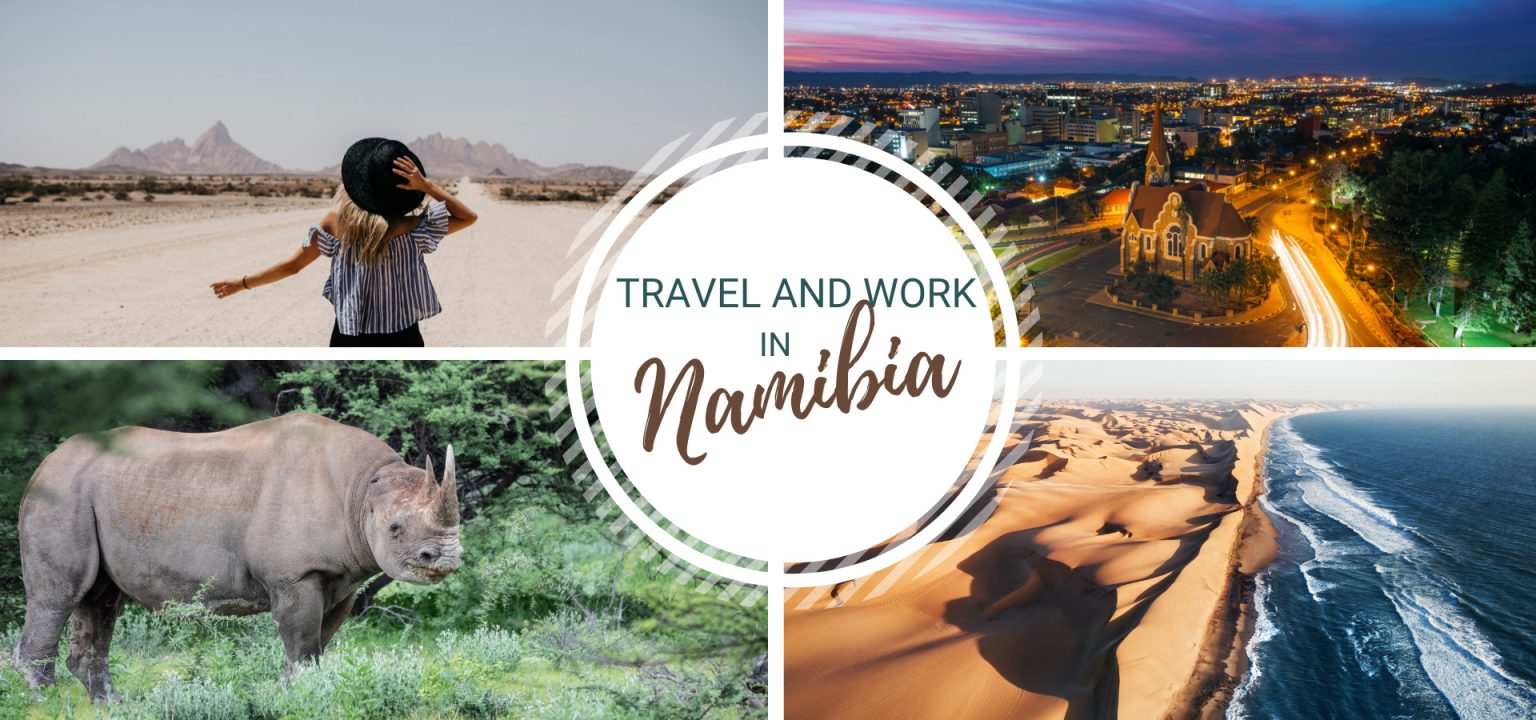
Tuesday, 09 May 2023, Windhoek
Namibia officially recorded her first digital nomads just five months after the official launch of the country’s Digital Nomad Visa (DNV) on 11 October 2022. The programme was launched by the Ministry of Home Affairs, Immigration and Security (MHAISS) and the Namibia Investment Promotion and Development Board (NIPDB), with the aim of enhancing economic activity in the country. The first two digital nomad visa applications were approved on 14 February 2023.
The DNV program aims to capitalise on the growing global remote workforce by offering location-independent foreign professionals the chance to live, work, and experience Namibia for up to six months. These digital nomads contribute towards the country’’s economy by injecting foreign currency in the ecosystem, but without usurping jobs meant for Namibians.
Early results are encouraging, with over 121 enquiries about the programme recorded so far. Of this number a total of 20 applications were received, out of which nine were approved, with five rejections. The reasons for rejection include applicants who do not meet the income requirements of USD2000 per month, and are thus unable to prove that they can effectively sustain themselves while in Namibia. Other applications were rejected because they were submitted while the applicants were already in Namibia on a different legal status such as a Tourist Visa, or they arrived in the country before approval of their application.
The launch of the DNV earned Namibia international praise, from Cape Town to Germany and as far as Australia. Following the launch, Namibia appeared in over 1,100 social media posts and articles online, across the world. Interest in the DNV primarily originates from Germany, South Africa, and the United States of America, as interested location independent workers search for qualities such as “fresh air,” “different culture,” and “best holiday destination”. Additionally, we have witnessed a surge in queries and applications for the DNV through our website, further demonstrating the growing global interest. This demonstrates Namibia’s potential to harness the digital nomad trend and create new opportunities for local businesses in the tourism and information and communication technologies support sectors.
As an effective marketing tool for Namibia, the DNV program has also created visibility through digital nomads documenting and sharing their experiences on social media and other mass media platforms, showcasing the nation’s natural beauty, rich cultural heritage, and hospitality. This increased visibility has the potential to help attract more tourists, investors, and talent, further stimulating the nation’s economic growth and development.
While speaking about her experience as a digital nomad, Carolyn Boston, blogger at ‘Nomad Girl’ said this about Namibia: “When living in Namibia as a digital nomad, you will be rewarded with breathtaking landscape views, making it an ideal place for nomads who want to work surrounded by nature. Stretching across 300,000 square miles, Namibia has an incredibly diverse landscape consisting of mighty dunes, rolling hills, and magnificent coastal deserts. It’s home to a fascinating array of desert-adapted plants and animals and breathtaking natural wonders.”
By design, the DNV complements, rather than competes with, the local workforce, ensuring digital nomads bring their own remote jobs or freelance projects to Namibia. This approach benefits the Namibian economy and its people while creating an environment for local entrepreneurs and professionals to expand their networks, learn from their international counterparts, and explore new avenues for collaboration.
With the global shift towards remote work over the past three (3) years, approximately 47 countries have developed digital nomad visa programs, according to the Harvard School of Business. Namibia is one of only five (5) African countries that offer a Digital Nomad Visa. The other four (4) countries are Seychelles, Cape Verde, Rwanda and Mauritius. The launch of Namibia’s Digital Nomad Visa program is a bold and strategic move that positions the country as a prime destination for remote workers from around the world. By embracing this global trend and offering a world-class visa program, Namibia stands to reap substantial economic, social, and cultural benefits.
Tuesday, 09 May 2023, Windhoek
In order to increase the number of approvals, the NIPDB will be rolling marketing campaigns specifically targeted at the digital nomad community. Frequently Asked Questions (FAQ) sheets will also be produced to ensure that applicants have access to relevant information pertaining to the qualifying criteria as this will enable the submission of complete applications, thus increasing the approval rates.
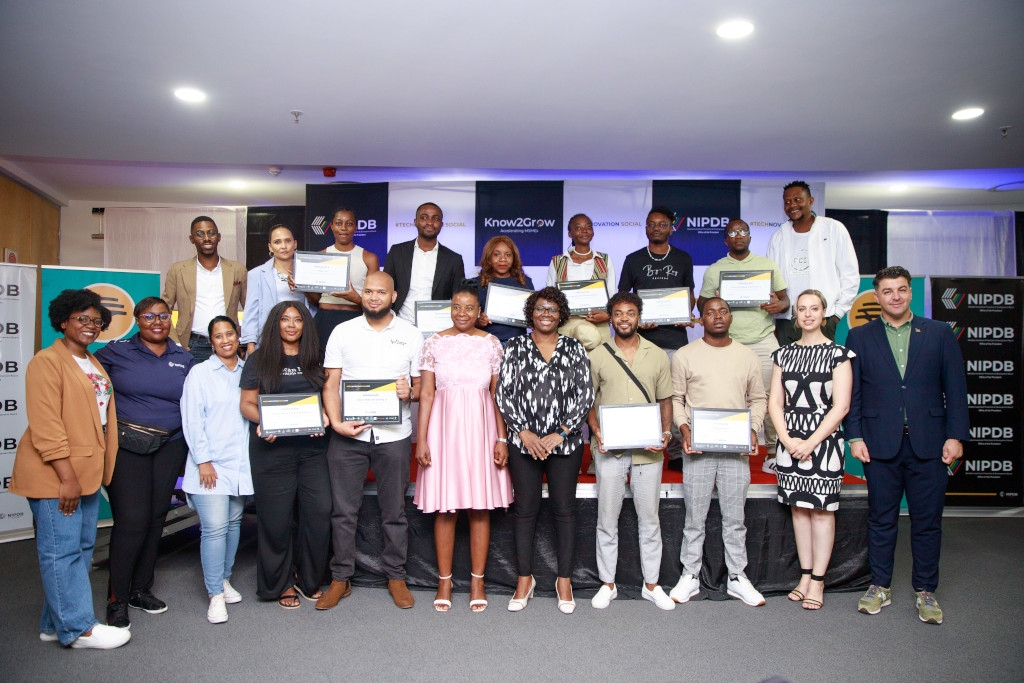
Monday, 3 April, Windhoek
Twelve (12) Namibian MSMEs will have an opportunity to showcase their products at the upcoming Creative Africa Nexus (CANEX) on the sidelines of the Intra-African Trade Fair (IATF) in Cote d’Ivoire this November following their successful win at the 2023 Technovation Social which took place in Windhoek, on Friday 31 March 2023. An initiative of the Namibia Investment Promotion and Development Board (NIPDB), the 2023 TechNovation Social is a biennial event, established to support and draw inspiration from Namibia’s Culture and Creative Industry (CCI) with the aim to unlock enterprise opportunities for micro, small and medium enterprises (MSMEs).
The CCI in Namibia continues to be relatively under-supported and under-recognised. This was particularly apparent during the outbreak of the Covid-19 pandemic, when many MSMEs within the industry found themselves without an income. Conversely, this sector offers some of the most dynamic business and career opportunities worldwide. In other countries, the pandemic underscored the importance of the CCI as a catalyst for the creation of new platforms, infrastructure, and facilities, capturing the attention of the world. The NIPDB, thus, believes that an empowered CCI can carry the Namibia brand to the world through its timeless creations.
“The NIPDB is mandated to be the lead coordinator of MSME activities in Namibia and unlock enterprise opportunities that support the development and growth of MSMEs. We achieve this by fostering trust relationships between various stakeholders with the goal to bridge the gap between those who have access to capital and markets and those who need access to those resources. We believe that this is key to empowering MSMEs across industries including, but not limited to, CCI,” stated Chief Executive Officer and Chairperson of the NIPDB, Nangula Uaandja.
TechNovationSocial, thus, exists to rejuvenate Namibia’s CCI sector by offering MSMEs in this industry access to international markets, funding, and revenue-generating prospects, as well as a platform to carry the Namibian brand and showcase their talents on an expansive stage. MSMEs in the CCI were invited to participate in and exhibit at TechNovationSocial. The MSMEs represented various subsectors, including new media and graphic design, fashion design, architecture, technology, software development, game development, pottery, textile manufacturing, music and performing arts, cosmetology, and filmmaking, among others.
Twelve (12) MSMEs were chosen to participate in a seven-month enterprise development journey which will culminate in a participation at the CANEX Summit in Abidjan, Côte d’Ivoire. The CANEX Summit unites creatives from across the continent and beyond, offering a platform for industry visionaries to display their work, collaborate, and forge connections with key decision-makers, influential investors, financial experts, and fellow creative professionals. With a stellar lineup of leading brands, artists, musicians, producers, and distributors, CANEX is poised to become the biggest assembly of creative talent in Africa for the year.
The winners of 2023 TechNovation Social, who represent various regions and sub-sectors are:
This is what two of the winners had to say:
As part of the journey, the 12 MSMEs will participate in a training programme to gain the most value from their experience and participation. Amongst others, the programs will focus on brand development, capacity building, pitching for television and brand visibility through the partner and sponsor organisations – Coca Cola Beverages Africa, FNB Namibia, City of Windhoek, Multichoice Namibia, Turipamwe, Redflag, Creative Culture Investments, Creative Africa Nexus (CANEX) at the Intra-African Trade Forum (IATF), Business Box and the MTC Windhoek Fashion Week.
Private sector collaboration is a crucial driver of MSME growth and development in Namibia, and we are grateful for the unwavering support of our key sponsor for the TechNovation Social event, FNB Namibia, a demonstration of their commitment. “Technovation creates a platform for FNB Namibia’s clients within the cultural and creative industry to grow their businesses, meet like minded individuals as well as engage potential investors while also inspiring the next generation of business owners to chase their dreams and make tangible contributions to our nation,” stated Communication Specialist at FNB Namibia, Hileni Amadhila.
“While creatives work from a place of passion, it is equally crucial to prioritise the business and financial aspects of their ventures. If they are unable to handle these matters themselves, investing in a knowledgeable and trustworthy support team can be the difference between success and failure. Talent alone is not always sufficient to achieve success. To take the business to the next level, one needs to leverage new tools and resources. We at the NIPDB, along with our partners, want to support them on that journey,” shared Executive Director: MSME Development Innovation and Acceleration at the NIPDB, Dino Ballotti.
Global triumphs in the CCI have propelled economic growth in numerous countries. The Philippines has capitalised on pageant participation, utilising events like Miss Universe and Miss World to enhance its global presence, attract tourists, and showcase its cultural heritage. Similarly, the fashion industries in France and Italy have significantly contributed to their economic growth, with Paris and Milan Fashion Weeks positioning them at the vanguard of the global fashion industry, catalysing job creation, innovation, and exports of luxury goods and textiles.
Therefore, through TechNovation Social, we aim to leverage the potential of the creative economy to drive economic transformation, job creation, and sustainable human development. By placing MSMEs with their talents and skills at the centre of the development process and fostering cooperation across all levers of the economy, we can create a more inclusive and socially cohesive society. Our goal is to unlock the full potential of the creative industry and use it to leapfrog our economy into the much-touted knowledge economy.

Tuesday, 11 October 2022, Windhoek
In an endeavour to increase economic activities in the country, Namibia has launched a new visa for remote workers, commonly referred to as digital nomads. The Namibia Digital Nomad Visa (DNV), an initiative of the Government of the Republic of Namibia, invites foreign professionals, who are location independent and self-sufficient, to live, work and travel hassle-free in Namibia for a period of up to six (6) months. The visa can be applied for with immediate effect and Namibia is ready to welcome applications by digital nomads to the country.
According to data compiled by the Harvard School of Business, globally, approximately 47 countries offer Digital Nomad Visas to allow location independent workers to legally work from those countries. The requirements for these visas differ from country to country in terms
of the length of the visa, the level of proof of income required, the cost of the programme and so forth. The NIPDB engaged in a diligent desk review to ensure that the standard of the Namibia Digital Nomad Visa is world class, valuable to digital nomads and serves the best interests of Namibia. Moreover, the convergence of these professionals will spark new connections and have the potential to build new enterprises for #NamibiaToTheWorld.
Speaking at the launch, Chief Executive Officer (CEO) and Chairperson at the NIPDB, Nangula Uaandja shared that the NIPDB exists to unlock opportunities that will enable a better quality of life for all Namibians. In simple terms, NIPDB sees its mandate as that of facilitating employment opportunities whether it be self employment or otherwise and eventually solve the triple challenges of unemployment, poverty and inequalities, a message that is entrenched in the prosperity vision of His Excellency, Dr Hage Geingob, President of the Republic of Namibia.
“We have identified that there is an opportunity to attract and gain economic benefit from people who want to work, live and travel in Namibia, without absorbing Namibian jobs. After discussion with our colleagues at the Ministry of Home Affairs, Immigration, Safety and Security, it was agreed that the existing legislative framework offers an opportunity to leverage this proposed instrument, which presents a good potential for Namibians to thrive,” stated Uaandja.
The new visa, which will be available to freelancers or people working remotely for companies outside of Namibia, offers an easy process for foreign nationals to live and work in Namibia. To qualify, aspiring digital nomads are expected to submit the following documents, amongst others:
While representing the Ministry of Home Affairs, Immigration, Safety and Security, Director of Immigration, Nehemia Nghishekwa expressed satisfaction over the launch of the visa and affirmed that the Ministry will collaborate with the NIPDB and relevant stakeholders to ensure successful implementation of this new initiative. “We understand that our systems and processes need to be modernised and respond to the current demands and in this regard we are currently refining our digital infrastructure to enable applicants to complete their entire application and payment process online. While we complete that process in the next two to three months, we are looking forward to start welcoming and processing applications by the first remote workers, through the current systems and processes, with immediate effect.” added Nghishekwa.
The Namibia DNV presents an opportunity to diversify and transform the Namibian business ecosystem and contribute to the economic development of the country, by attracting talented individuals who can inject foreign currency into the country. Additionally, Namibians must anchor themselves into and create value chains by rendering various professional services, solving problems unique to digital nomads, attracting traffic to the hospitality and tourism industry as well as fostering an environment to share knowledge between local and international professionals.
Technology aided, location independent work has risen in popularity over the years. However, following the outbreak of the Covid-19 pandemic, people have started to appreciate and embrace remote working as a reality. In this vein, many countries whose tourism sectors have been affected negatively due to a reduction in global travel, began offering specific visas to remote workers such as Digital Nomad Visas. This new visa permits professionals to leverage their remote positions to allow them to live in and travel to holiday destinations and hotspots for months at a time. According to 2021 statistics by A Brother Abroad, there are approximately 35 million digital nomads worldwide, who contribute a global economic value of USD 787 billion.
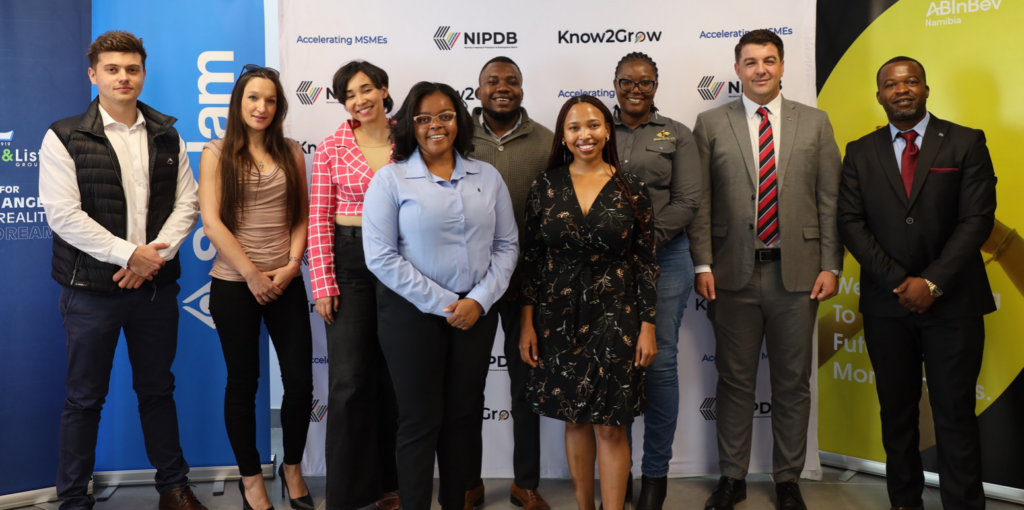
Wednesday, 7 September 2022, Windhoek
Today the Namibia Investment Promotion and Development Board (NIPDB) launched the inaugural Know2Grow (K2G) NextGen Entrepreneurs – an annual market access and capacity building platform designed to drive the development and acceleration of innovative businesses by young entrepreneurs. The event is scheduled to take place in Tsumeb on 16 to 18 November 2022.
As part of its mandate, the NIPDB is responsible for building institutional mechanisms to serve as the primary coordinator across all MSME development levers on a national level. In this role, the NIPDB facilitates collaboration between the various stakeholders to ensure the effective implementation of programmes that will create an enabling ecosystem for MSMEs & Startups.
In delivering on this mandate, through the K2G NextGen Entrepreneurs project, the NIPDB is creating a platform for MSMEs to showcase their business offerings, engage various industry stakeholders and create linkages with fellow young entrepreneurs.
The event is open to all MSME ventures across the country, owned by young Namibians between the ages of 18 and 35. “We are very intentional about MSME Development and have various initiatives and programmes targeted at MSME support across all levels and in different sectors. This specific one is youth-focused,” said NIPDB’s Executive Director for MSME Development, Innovation and Acceleration, Dino Ballotti.
The overall objective is to accelerate young entrepreneurs’ business ventures through exposure to potential support and business linkages. “Through various Business Support Organisations (BSO’s) we are able to help accelerate the growth of MSMEs, while creating an enabling environment for scaling, through innovation, value addition and collaboration. We are especially excited to champion this initiative for Namibians in Namibia,” said Ballotti.
In addition to showcasing their products and services, MSMEs will have the added benefit of attending various seminars and workshops, aimed at sharing information about managing their businesses, as well as B2B retail engagements, specifically focused on enabling business owners to get their products on retail shelves.
The NIPDB is cognisant of the fact that the success of the K2G NextGen Entrepreneurs is contingent upon a collaborative effort between the private and public sector, and acknowledges the various partners that have pledged their support for the event. These include Standard Bank Namibia as the lead sponsor, Coca Cola Namibia, ABInBev, Sanlam Namibia, Ohlthaver & List Group and B2Gold.
The event is also supported by Member of Parliament Honourable Patience Masua and Creative Entrepreneur, Luis Munana who will serve as the official Brand Ambassadors.
Applications are now open for exhibitors and food vendors. MSMEs in the following sectors are encouraged to apply: textile & manufacturing, agriculture, horticulture & food processing, aquaculture, electronics & ICT, renewable energy (Green Hydrogen) and pharmaceuticals. The application forms are available on the NIPDB website (www.nipdb.com) and entries close on 21 September 2022.
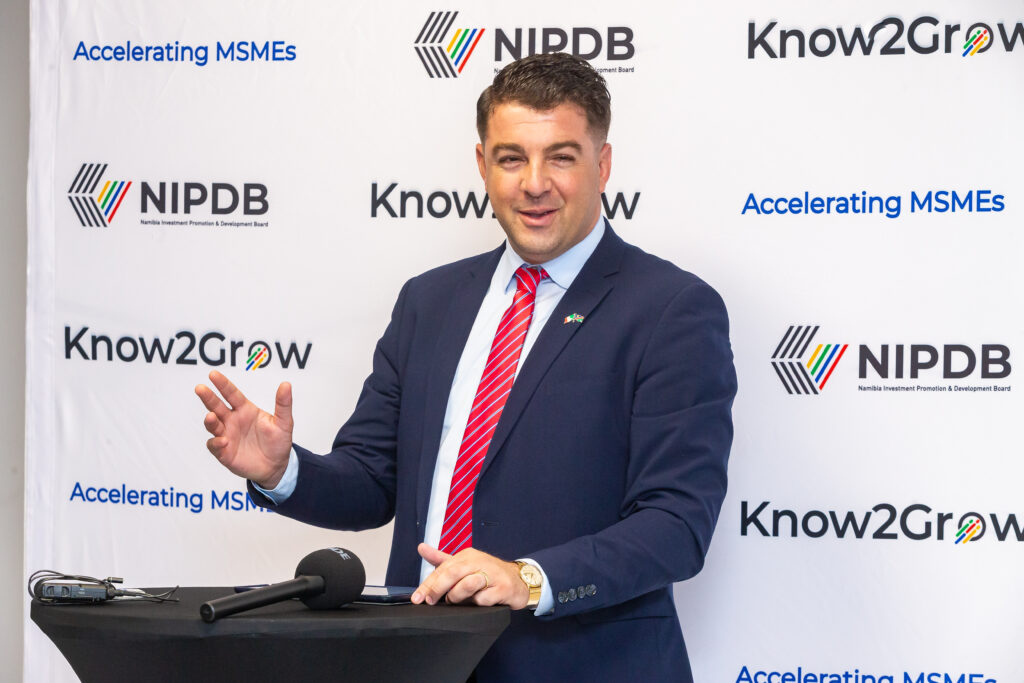
Tuesday, 10 May 2022, Windhoek
Adequately capacitated MSMEs can be at the forefront of driving the country’s economy.
The NIPDB is mandated, among other things, to build institutional mechanisms and to serve as the primary coordinator across all MSME development levers on a national level. In this role, the NIPDB facilitates collaboration between the various stakeholders to ensure the effective implementation of programmes that will create an enabling ecosystem for MSMEs & Startups.
One such programme is the Know2Grow campaign that the Board officially launched in February 2022. The Know2Grow campaign is the NIPDB’s MSME-focused anchor campaign and is aimed at empowering MSMEs with vital knowledge and information that enable them to scale by gaining access to markets to sell their products or secure funding for business expansion. .
Know2Grow is conducted as formal information sessions facilitated by the NIPDB in collaboration with key partners including commercial banks and government agencies that share relevant information pertaining to starting and operating a MSME business in Namibia. Key topics to be covered include opportunities related to market access and access to funding which are vital for MSME success and scaling.
Since its launch in February 2022, the campaign has been rolled out in the Hardap and //Kharas regions, engaging with over 1,000 MSME owners so far. The NIPDB has set itself an ambitious target of empowering at least 3,000 MSMEs countrywide by the end of the year.
Following the success of the first phase of the campaign, the NIPDB is taking Know2Grow to the northern region, kicking off in Tsumeb in the Oshikoto region on 10 May 2022, and culminating in Katima Mulilo on 20 May 2022. In addition to the experts representing various Business Support Organisations, the NIPDB has enlisted prominent entrepreneurs as speakers to share their entrepreneurship experience and motivate the participants. These include Nico Kaiyamo, an entrepreneur based in Tsumeb, Beata Shitemba, founder of Nels Babies and Kiddies, Keri Kosozi, founder of Usuta Couture and Prisca Mayombelo, Founding Director of PM Transport and Road Safety Consulting.
All sessions are free and open to MSMEs currently operating in or those who aspire to start businesses in the following sectors: Textile and Manufacturing; Agriculture, Horticulture and Food Processing; Electronics and Information, Communication & Technology; Pharmaceuticals, Renewable Energy and Green Hydrogen.
Share this article on:
RMB and FNB Commercial backs the Africa Hospitality Investment Forum with N$500,000 sponsorship 28 May 2024On behalf of FirstRand Namibia
O&L Leisure announces N$500,000 sponsorship towards the Africa Hospitality Investment Forum as Namibia prepares to host 300 investors and industry
NIPDB analysis of the National Budget 2024/25 Windhoek, 29 February 2024In his New Year’s speech for 2024, President Hage Geingob
Dubai, 08 December 2023As part of Namibia’s COP28 programme, the Namibia Investment Promotion and Development Board (NIPDB), the Environmental Investment
Wednesday, 18 October 2023, WindhoekAccording to the 2022 Digital Financing for Sustainable Development: An Assessment and Strategy for Namibia commissioned

Thank you for uploading the document
In partnership with the Rand Merchant Bank (RMB) Namibia, the NIPDB hosted an “Invest in Namibia Summit” on the margins of the 78th session of the United Nations General Assembly (UNGA) in New York, United States.
Building on the significant interest Namibia attracted on account of recent oil and gas discoveries and green hydrogen projects that have placed Namibia on the radar of investors, the summit was needed to amplify Namibia as a preferred investment destination and attract investment into other sectors of the economy, such as green hydrogen, agriculture, tourism and mining, in addition to further investment in oil and gas. RMB’s partnership was therefore invaluable to foster awareness of Namibian opportunities to the international community towards increased investment interest.
In collaboration with the World Economic Forum (WEF), NIPDB is developing the Namibia Sustainable Supplier Database (SD2). This database comprises an online, centralised repository of information about domestic companies that aims to support domestic and international investors to identify potential suppliers, service providers, or business partners in Namibia.
This initiative is expected to create a triple benefit as follows:
The Know2Grow (K2G) High Potential Pool is designed to assist in expanding the activities of export-ready micro and small businesses with significant potential for exporting their products. In 2023, Nedbank Namibia, First National Bank Namibia and Bank Windhoek made a generous pledge of N$300,000 to support the High Potential Pool.
More than 20 export-ready MSMEs from the K2G-High Potential Pool have participated. They were selected to take part in international events focusing on market access and export promotion, including the Annual Investment Meeting held in Abu Dhabi in May 2023, the 3rd China-Africa Economic and Trade Expo, and the Southern Africa International Trade Expo (SAITEX) as part of Africa’s Big 7 exhibition held in Johannesburg in May and June 2023, respectively.
